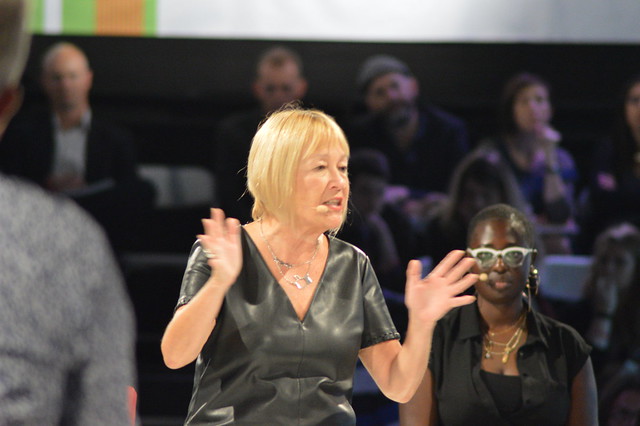
Simon Davis’ post about “Why I’ve stopped caring about what the public thinks about privacy” is such a great piece. I’m sorry to Simon but I had to copy a lot to give the full context.
To put it bluntly, I’ve stopped worrying about whether the public cares about privacy – and I believe privacy advocates should stop worrying about it too.
Unless human rights activists and their philanthropic backers abandon their focus on public opinion, the prospects for reform of mass surveillance will disintegrate.
I’ll go even further. Unless human rights activists and their philanthropic backers abandon their focus on public opinion, the prospects for reform of mass surveillance will disintegrate.
I’m aware that these thoughts might sound wildly contradictory – if not insane. Over the past three years I’ve tested them out on audiences across the world and experienced waves of disbelief. That’s one reason why I’m certain those ideas are on the right track.
In summary, my belief is that too many of us are obsessing about whether X percent of people change their default privacy settings, or whether Y+4 percent “care very much” about privacy – or indeed whether those figures went up or down in the last few months or were influenced by loaded questions, etc etc.
As advocates, we should never buy into that formula; it’s a trap. And for funding organisations to think that way is a betrayal of fundamental rights. A program director for a medium sized philanthropic foundation told me earlier this month that her board had “given up” on privacy because “we can’t measure any change in people’s habits”. I don’t see that equation being used as a measure of the importance of other rights.
In the failed rationale of opinion and user behaviour statistics, the relative importance of privacy depends on the level of active popular interest in the topic. According to some commentators, privacy is a non-issue if only a minority of people actually adopt privacy protection in their social networking or mobile use.
Imagine if that logic extended to other fundamental rights. It would mean that the right to a fair trial would be destabilized every time there was a shift in public sentiment. And it would mean that Unfair Contract protections in consumer law would never have been adopted – replaced instead with a “Buyer Beware” ideology.
Just to be clear, I’m not saying public opinion isn’t relevant. Nor am I saying that public support isn’t a laudable goal. We should always strive to positively influence thoughts and beliefs. It’s certainly true that for some specific campaigns, changing the hearts and minds of the majority is critically important.
The struggle for human rights – or indeed the struggle for progress generally – rarely depended on the involvement of the majority (or even the support of the majority).
However, on the broader level, there’s a risk that we will end up cementing both our belief system and our program objectives to the latest bar talk or some dubiously constructed stats about online user behaviour. Or, at least, the funding organisations will do so.
It seems to me we’ve been collectively sucked into the mindset that privacy protection somehow depends on scale of adoption. That populist formula is killing any hope that this fragile right will survive the overwhelming public lust for greater safety and more useful data.
I’ve noticed an enduring (and possibly growing) argument that public support for privacy is largely theoretical because relatively few people put their beliefs into practice. Conversations on that topic tend to dwell depressingly on public hypocrisy, with detractors pointing out that the general population fails to use the privacy tools that are on offer. Even worse, whole populations avidly feed off the very data streams that they claim to be wary of. Apparently this alleged public disinterest and hypocrisy invalidates arguments for stronger privacy.
(As a side point, I don’t believe that the situation is so black and white. People have become far more privacy aware in recent years, and their expectations of good practice by organisations have increased. People change their behaviour slowly over time, and yet there has been real progress in recent years.)
I also (generally) am less caring of what the general public think about these issues. In recent times, people have convinced me to join different services and tactfully decline. I do sometimes forget my world isn’t the mainstream, and wonder why are we still having these discussions.
Don’t get me wrong, its always interesting good to have the discussion, especially because most people still see privacy in a binary way but when pressed are much less binary about their decisions. A while ago I started calling it data ethics as privacy alone leaves the door open to worries about security for example.
Context and experience has a lot to do with it and in the discussion this becomes much clearer. Just ask anyone who has had their idenity stolen, hacked or abused. Most of the public will never (luckily) experience this.
I’d chalk this one up as listen to the experts…









